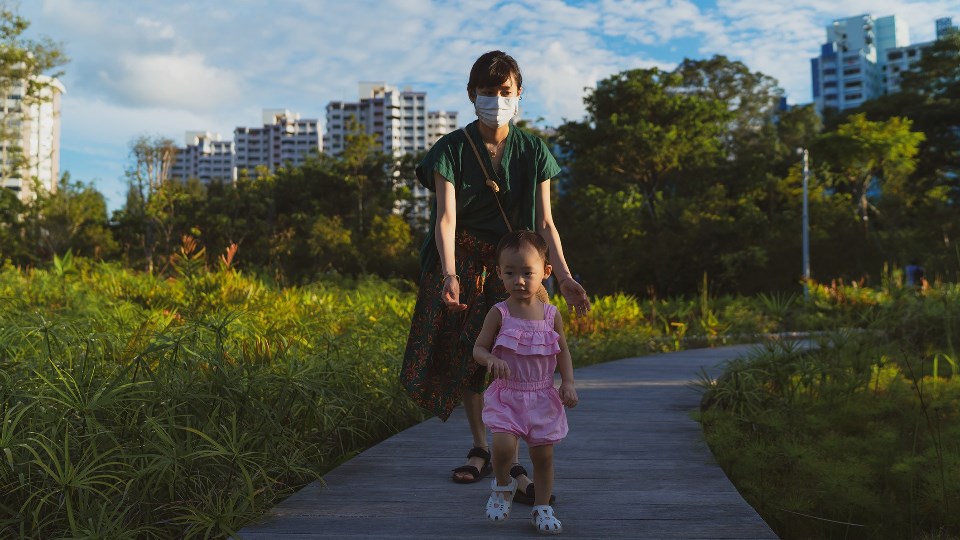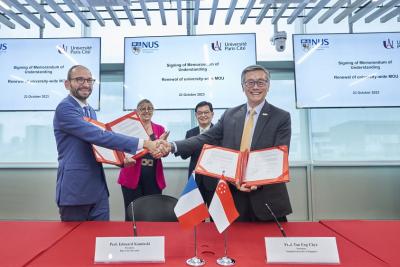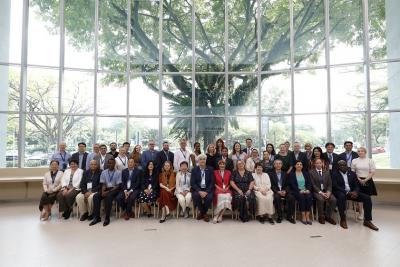Các nhà nghiên cứu của NUS phát hiện ra rằng sức khỏe & tinh thần của các bà mẹ Singapore có thu nhập thấp không xấu đi trong thời gian COVID-19
The advent of COVID-19 has led to much discussion about the severe toll it has taken on people’s mental health worldwide. A recent World Health Organization study revealed that the global prevalence of anxiety and depression rose by a staggering 25 per cent in the first year of the pandemic, and that young people and women were the worst hit. Multiple stress factors contributed to this, with the report citing the unprecedented levels of stress arising from social isolation during the pandemic as a major reason for the rise.

A mother and her daughter in a park in Singapore.
However, there has been a dearth of research on the mental health conditions of society’s long-term poor during this period. Addressing this, a team of NUS researchers from the Department of Social Work at the NUS Faculty of Arts and Social Sciences embarked on a novel study to examine COVID-19’s impact on the levels of depression and anxiety of low-income Singaporean mothers and their coping strategies.
The study revealed an unexpected finding – the mental health state of financially-poor mothers was found to be relatively stable in spite of the uncertainties wrought by the pandemic, with many adopting different strategies to cope with financial distress. Also, COVID-19 government support grants helped cushion the financial stress.
Associate Professor Esther Goh, who heads the social work department and led the study, revealed, “This is one of the first studies that empirically tracked the mental health conditions of low-income mothers at the initial phase of COVID-19 pandemic and immediately after the peak of infection in Singapore in June 2020. It gives rich insights into the coping strategies of the poor and government grant provisions that might have mitigated the unprecedented impact of COVID-19 on their mental health.”




















